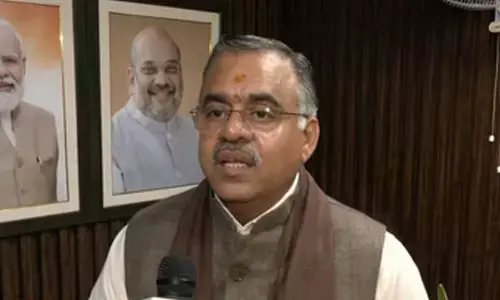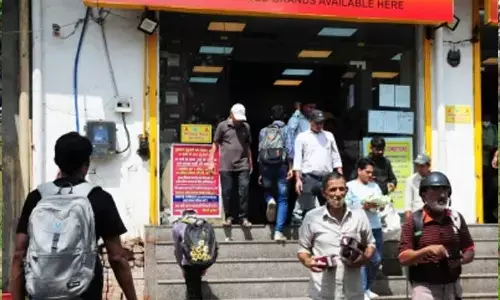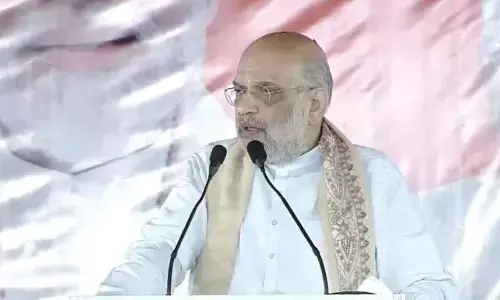A roadmap for $5 trillion economy

Economy Survey predicts rebounce from 5-year low
New Delhi: The Economic Survey presented to Parliament just a day before the budget by Union Finance Minister Nirmala Sitharaman reveals the government's roadmap to take India to a $5 trillion economy.
"With the aspirations that have been kindled among our predominantly young population, India stands at a historic moment when sustained high economic growth has become a national imperative," Chief Economic Adviser Krishnamurthy V Subramanian said in his preface to the Survey.
The Survey says, "The growth in the economy is expected to pick up in 2019-20 as macroeconomic conditions continue to be stable."
To become a $5 trillion economy by 2024-25, India needs to sustain a real Gross Domestic Product (GDP) growth rate of 8 per cent. This can be possible only through a sustained "virtuous cycle" of savings, investments and exports.
The survey outlines the challenges the country's economy faces as it is at a 5-year low of 6.8 per cent in 2018-19 and the fourth quarter growth has slumped to 5.8 per cent which is a 17-quarter low. The fiscal deficit estimate for 2018-19 has been retained at 3.4 per cent of the GDP, same as projected in the interim Budget.
"The political stability in the country should push the animal spirits of the economy, while the higher capacity utilisation and an uptick in business expectations should increase investment activity in 2019-20," the survey said.
Modi government is expected to push up spending to spur economic growth through tax incentives to boost consumer demand and investment.
The document also provides a comparative study of the state of economy on several social and industry sectors before Modi 1.0 government launched initiatives like sanitation, cooking gas etc along with giving an impetus to manufacturing sector.
A shortfall in monsoon rain - important for the agriculture sector that forms 15 per cent of the economy and employs nearly half of India's workers - has raised concerns about rural distress and strengthened the case for government intervention.
Expressing concern that India will be in the global hotspot for 'water insecurity' by 2050, the survey said the focus in agriculture should shift from 'land productivity' to 'irrigation water productivity'.
"Therefore, devising policies to incentivise farmers to adopt efficient ways of water use should become a national priority to avert the looming water crisis."
"The performance of the banking system has improved as ratios declined and credit growth accelerated. However, financial flows to the economy remained constrained because of the decline in the amount of equity finance raised from capital markets and stress in the non-banking finance sector," the survey noted.
The survey seems to have been greatly influenced by China and has perhaps been taken as a role model.
In the first chapter of survey there is mention of China several times and indicates where we should take a leaf of its book or learn lessons from them.
CEA compared India's growth record to China in the last five years to bring home the commendable progress India made during Modi 1.0.
He then draws evidence from the Chinese experience to show how the growth rate that India is targeting would only be possible on the back of a virtuous cycle — that of savings, investments and exports aided by a favourable demographics.
Retirement age set to rise
Retiring at 70 may be a reality. The possibility seems inevitable due to increase in life expectancy, says the Economic Survey.
India's population is expected to grow under 0.5 per cent during 2031-41 due to decline in fertility rate and increase in life expectancy, the survey stated.
"Since an increase in the retirement age is perhaps inevitable, it may be worthwhile signalling this change well in advance – perhaps a decade before the anticipated shift – so that the workforce can be prepared for it, the Survey added










